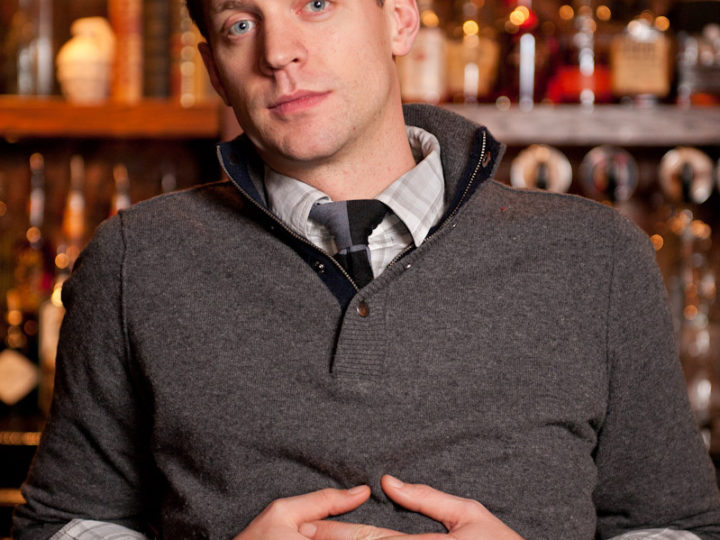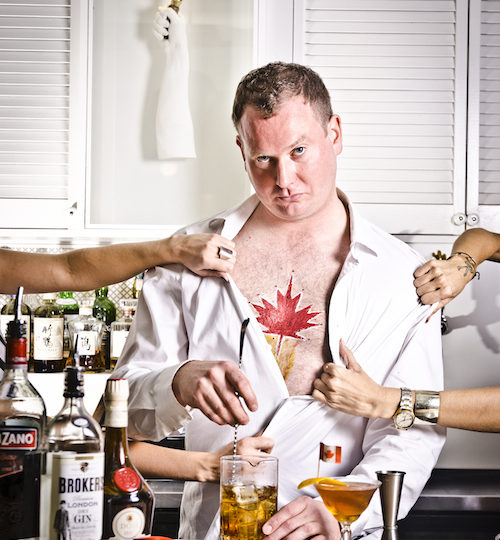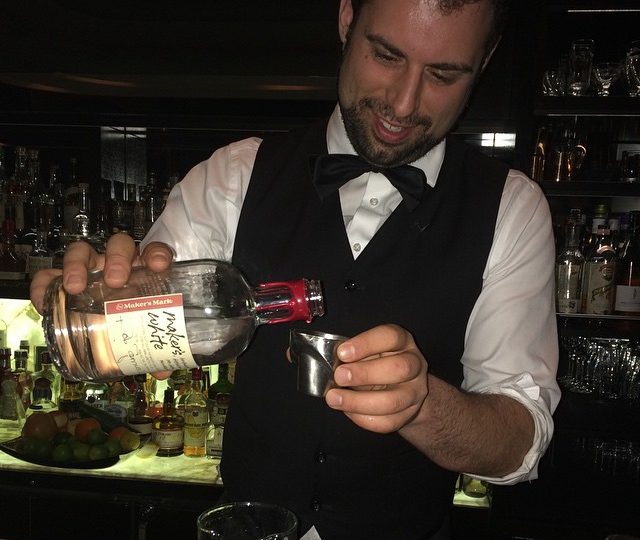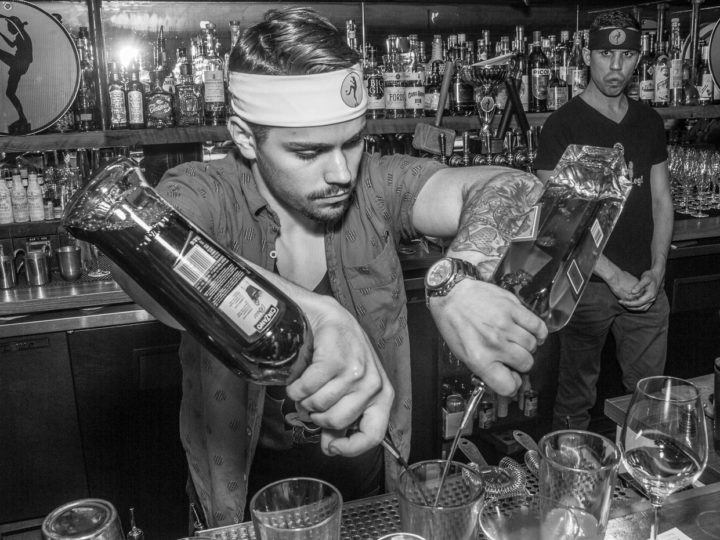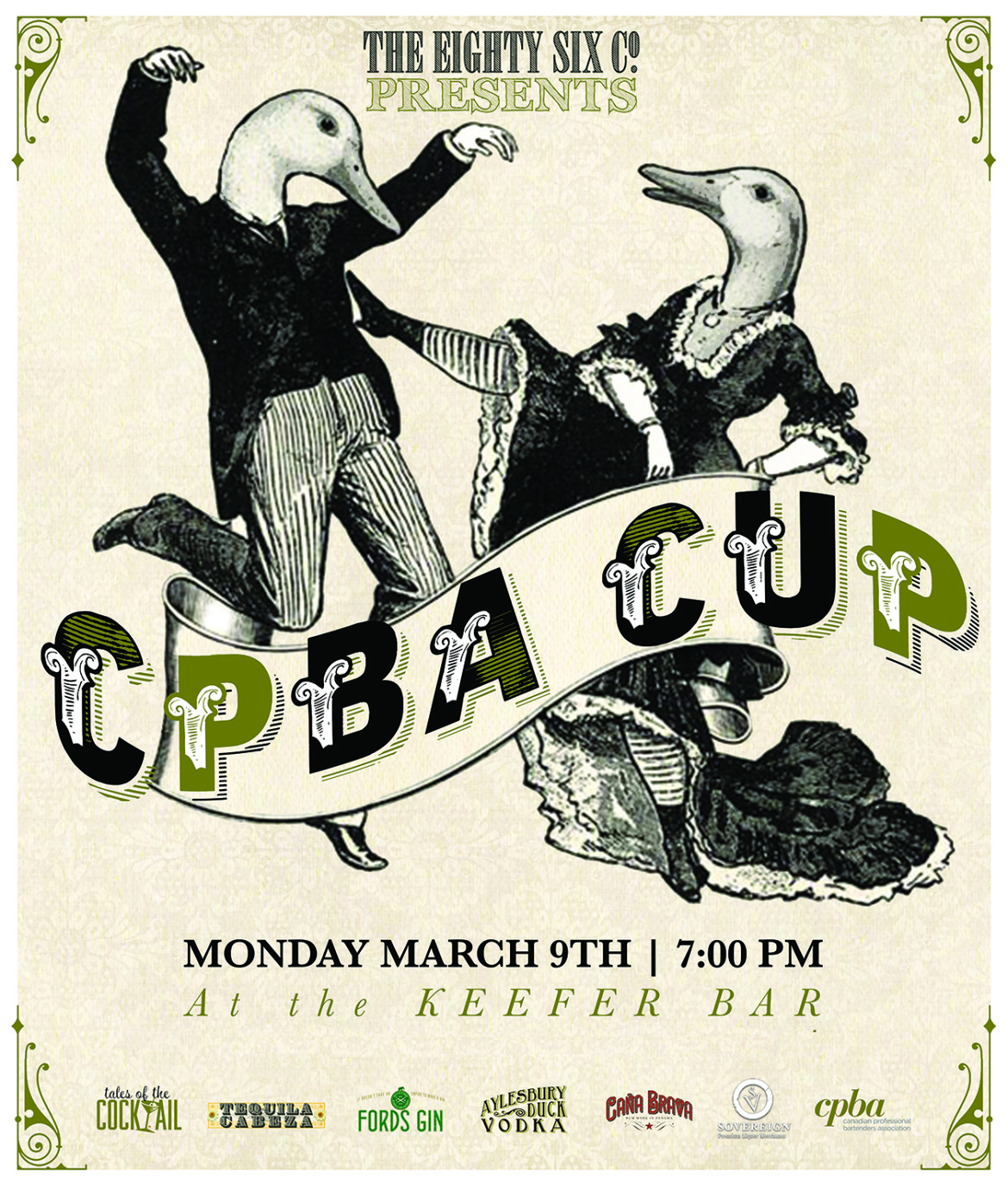
The CPBA Cup, Canada’s premier cocktail event held by the bartending community for the bartending community takes place this Monday at the Keefer Bar in Vancouver’s Chinatown. Us here in the bartending world are well into competition season with many high-profile events having already taken place this calendar year and some of the biggest competitions the world has to offer just around the corner.
Bartenders country-wide will be sitting down in front of their computers over the next few months filling out application forms, designing new drink recipes, submitting cocktail photos and standing in front of a slew of judges to reign supreme and shine in whichever brand’s limelight they’ve chosen to compete under. In the world of competitions, the stakes can be extremely high and the minutest error could cost a competitor dearly. A smudged glass could be the difference between an international final half way across the globe and a XL branded rum t-shirt; things not easily detected during everyday service are magnified by panels of judges looking for reasons to pass or fail a competitor in multiple categories. Winning these competitions can take skill, flare, personality and near flawless execution.
I myself have competed in front of some pretty ominous judges; standing in front of bartenders that have achieved celebrity status in our industry is no easy task, particularly when their attention is directed 100% at you serving them. I talked to a few judges, all of whom I’ve had the privilege to mix for in a competition setting, and ask them what they think of the modern cocktail competition. Building these personalities up and stating all of their accolades would slow down the bandwidth of even the most advanced computers, so I’ll keep their intros short and ask, if you’re curious, to look into their achievements elsewhere. I talked to Jenner Cormier, the first ever winner of Diageo World Class Canada who was responsible for judging the nation’s talent in the competition’s sophomore year. David Wolowidnyk, Bar Manager at Vancouver’s famed West Restaurant, winner of Bombay’s World’s Most Imaginative Bartender in 2012 and a founding member of the Canadian Professional Bartender’s Association. Simon Ogden, Bar Manager at Victoria’s Veneto at the Hotel Rialto, creator of the modern CPBA competition scoring system and basically the Pacific Northwest Bartender’s Obi-Wan and lastly Philip Duff, one of the cocktail world’s most beloved personalities, a ‘jet-set bartender of the first order’, architect of many international bartender challenges and the Director of Education for Tales of the Cocktail. Here’s what they had to say:
Q. Why do you feel bartending/cocktail competitions are important for our industry?
Simon: Well, executed at their highest level, they’re tremendous fun, and I’m in favour of anything that reminds us that fun is literally our business. The danger here is that the latent anxiety that’s wrapped up in performance and competitiveness pushes the fun factor out of the way (something I’ve seen oh so many times), and success in competition gets confused with success as a bartender, which it most certainly should not. The responsibility here, I think, is on the event organizers to keep it a blast for everyone. Comps are also great for our relationships with brands, of course, so that’s a win-win. I find it all a good reminder that I too am a liquor rep, I just work for more brands than most.
Jenner: Bartending competitions serve as a way to gain exposure in an industry that is sometimes difficult to gain entry into. These competitions also act as learning platforms for younger bartenders. Often times, there is so much you can learn as a novice bartender interacting with some (certainly not all) judging panels and fellow competitors. Competitions are certainly not essential in a bartending career by any means, but can certainly help you to gain valuable accolades and priceless exposure.
David: Competitions can help build the confidence of bartenders while offering an opportunity to learn from the other competitors. Pushing the limits and stepping outside of the box during the development of new recipes often expands horizons and encourages growth in theory, product knowledge, and skill set. Competitions also offer a networking opportunity with other Bartenders and Brand Managers, which usually lead to great times.
Philip: It’s the single best way to identify the up and coming talent of the future because the ones, almost exclusively, who enter and do well in contests go on to be disproportionately famous and more influential in our industry. I’ve created competitions, like G’Vine for instance, where we were the first contest that gave some profile to Franky Marshall before she was a Dead Rabbit or to Jeff Bell before he was head bartender at PDT, to Brian Macgregor at Wingtip in San Francisco. The Bols Around the World contest I created was the first title ever for a bartender from Australia that no one outside of Australia had ever heard of called Naren Young. That’s what it is, it’s the single best way to identify the young up and coming talent; they’re the ones who are still young and hungry and they’ll jump through the hoops and they’ll do it right.
Q. What’s the single most important skill you look for in a competitor when you are judging?
Simon: I look for two, and they’re equally weighted: skill as a cocktail creator and skill as a performer. I would very much like to see competitive bartenders put as much work into their presentation skills as they do with their cocktail mechanics. That’s the silver bullet for competitive success, actually; these are bartending competitions not cocktail competitions. Be funny, fluid, big, smart, and endearing. Own that room.
Jenner: Humility, grace, knowledge, technique, cleanliness behind a bar, efficiency and certainly the ability to properly make a drink. I really try to observe the entire spectrum of a bartender’s skills and abilities behind the stick.
David: Besides the obvious basic skills necessary to make a drink, the ability to present fluidly and convey appropriate messages is very important.
Philip: The most important skill for a bartender is to know your judge, like knowing a guest, and you totally can these days. I’m privileged to still judge regionally, nationally and sometimes internationally and I do get young bartenders or guys who’ve entered, contact me and say “hey I’ve heard you’re a judge, is there anything you’re looking out for?” or they Facebook friend me cause they want to get to know me better and that’s very smart. You can’t cross the line and tell them this is exactly what I’m looking for but between Facebook, Instagram and Google you can find out a hell of a lot, you can find out that if ‘x y z’ really pisses off Julie Reiner and she’s your judge, maybe don’t do that.
Q. What’s the biggest mistake you see that most competitors fall prey too?
Simon: I’ll give you the top three, to be even more helpful:
Forgetting the fun. The last thing I always say to any bartender I coach before they step up is “remember, it’s just another night at work.”
Not balancing the drink; this still surprises me. We need to always be defining and refining what this actually means.
Presenting unassertive drinks. All judges are flavour-heads to begin with, and they taste a lot of booze. Keep the cocktails big and assertive. Sours are afternoon patio drinks. Citric acid is a bully. Long drinks (generally) wash out delicate flavours. Sugar and low temperatures kill flavour more assuredly than anything else in our business. Keep the proof up; add remarkable aromatics to the top.
Monster pro tip: the optimum temperature for most cocktails is somewhere in the middle of its evolution, not at the top. Remember that your judges only sample the first couple of sips. Comp temperature is not necessarily bar service temperature.
Jenner: Being under prepared. A lot of bartenders will not practice their ‘routine’ or presentation before they enter a competition – the first time they present is often the first time they have made the drink. The bartenders that are constantly rehearsing are often the bartenders who end up winning.
David: Telling everyone what they had tried to accomplish but “it didn’t work out”. Never talk about failing ideas, only talk about successfully endeavours.
Philip: Not reading the rules. We as judges approach this from the point of view that: I have all these boxes I have to tick to give you points and it’s up to you if I give you a tick in the box or not. Speaking as a judge, if you do that thing, I will give you the points, that’s it. I try very hard to not be that IBA judge who hates double straining so I find a way to punish you some other way on the scorecard…simply, if you do the thing, you get the points. Conversely if you don’t do the thing, then fuck it man, you had the rules, I want to give you these points but I can only give them if you do ‘x’ and if you don’t do ‘x’ then I can’t.
Q. What’s the ballsiest thing you’ve ever seen a bartender do at a competition that’s worked positively for them?
Simon: I think it’s ballsy just to get up there and be a giant nerd about what you love, but some of these bartenders nowadays are certainly taking it up a notch. A young fella at the last competition I judged broke into a dance to the rhythm of his shakers and the crowd just loved it. The best advice I can ever give for this thing we do is to be delightful. Delight your crowd, your guests, and your judges. You may not succeed every day, but that’s the thing to aim for.
Jenner: Using antique tools is always pretty impressive. One Australian bartender, and good friend of mine, swung a bucket around his head and I’ve watched a competitor from China perform a traditional tea service. Once you are exposed to bartending on international levels, the creativity that some of these bartenders possess is out of this world.
David: Smoking a glass with hashish was certainly ballsy but I wouldn’t say it was that successful.
Philip: I was MC at the global Cherry Heering Sling off contest, their global search for the best sling at the Bar Convent Berlin show at the Ritz. Nick Kobbernagel Hovinds, the GM of Ruby in Copenhagen, made his drink with aquavit, but not just regular aquavit, with a particular kind called Taffel, which is right off the still, un-aged, high proof aquavit. It wasn’t just “aquavit” it was a balls out, all the way aquavit, and he won, it was a delicious drink. He didn’t just win for freak value, it was a hell of a delicious drink but he was either going to win that sucker or come last.
Q. What’s the single biggest error you’ve ever witnessed from a competitor?
Simon: Getting shit-faced. Smart idea, dingus.
Jenner: Not getting to know the judges can really play against you in certain situations – dietary restrictions are a big one. A bartender once served a vegetarian judge a drink containing meat in a competition setting.
David: Drinking heavily before presenting, to the point where the base spirit was added twice because the bartender forgot that it had already been added. The individual was an embarrassing drunk and was disqualified for being disrespectful to the brand and other competitors.
Philip: More than once that the bartender has come out, and the bartender is slick and polished and got everything down to make the cocktail and just does not use the one (promoter’s/sponsor) ingredient that they should have and it’s a consequence of just nerves. It can only be nerves because these people were incredibly well polished.
Q. What’s the most important skill a judge must have when overseeing a field of competitors?
Simon: To honestly, down to the very depths of their heart, want every single competitor to take first place. Overlapping that, the possession of an exquisite palate and the language to communicate from it.
Jenner: Being able to separate personal preferences from the material being judged. All too often judges will make decisions based upon what they enjoy drinking and completely disregarding the actual judging criteria that they should be following which is extremely disheartening – they are missing the point of why they were asked to judge in the first place. This happens all too often.
Philip: To be conscientious and also have a real solid talk through of what the points actually represent. If you give somebody a 10/10 in mixology that means that person is the best mixologist in the contest, and that’s pretty fucking serious, you know. Technically, if there are 10 competitors, how the hell are you going to know? You can’t give somebody a ten if they’re the 2nd or 3rd up, as amazing as the drink might be. You need to all work out where you’re at in your heads as far as scoring and after that, I don’t think judges should talk to each other when they’re scoring. I think they should just score their scores hand them in and only afterwards discuss why they marked the way they did.
David: Objectivity.
[Note: The comments from Philip are a condensed version of a much larger conversation he and I had. I plan on posting a complete transcript of the interview at a later date as it’s got some really great stuff in it that didn’t make it into this piece.]
March 2015, Alex Black


